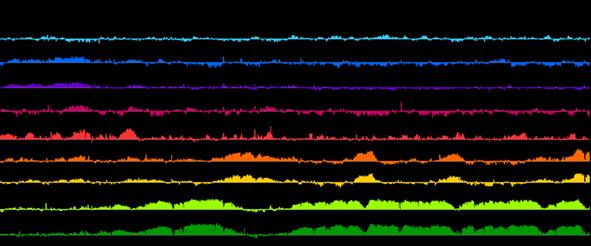
The Control of Chromatin Structure and Function
Keywords
C. elegans, chromatin, epigenetics, transcription, genomics, post-transcriptional regulation
Research interests
Chromatin regulation plays a central role in transcriptional control and genome organization, and disregulation is implicated in human disease. We use the power of functional genetics and genomics in C. elegans to address fundamental questions in chromatin regulation and transcriptional control, by analysing epigenetic state and function in wild-type and mutant animals and tissues. C. elegans is an excellent system for studies of chromatin function due to itssmall well-annotated genome, powerful RNAi technology, and rich resource of chromatin mutants.
Our research areas:
1. Functions of histone modifications in transcriptional and post-transcriptional processes
A large number of post-translational modifications (PTMs) of histones occur in chromatin and individual modifications are highly associated with different activity states and gene features. However, the functional relevance of most modifications in animals is incomplete or unknown. We address these questions by analysing the chromatin and gene expression of mutants of predicted histone modifiers.
2. Chromatin states and genome organization
Within chromatin, particular histone modifications and/or chromatin proteins often co-occur and different combinations (termed “chromatin states”) have been shown to be associated with different gene features. By generating and analysing C. elegans chromatin state maps, we have identified states that mark new types of features, for example a boundary state separating active from inactive regions. We are investigating genome organization by analysing the formation and function of the boundary state. We are also extending the chromatin state maps, and studying the function of other states.
3. Characterization and functional analysis of promoters, enhancers, and non-coding RNAs
It is clear that RNA Polymerase II transcription is far more extensive than previously thought, much of it not associated with protein-coding genes. We recently determined the genome-wide landscape of RNA Polymerase II transcription initiation and elongation in C. elegans. In addition to mapping transcription start sites for protein coding genes, we discovered extensive transcription of enhancer regions, with elongation often oriented towards the nearest downstream gene. We are investigating the relationship between promoter and enhancer transcription and its developmental regulation, and functions for other types of non-coding RNAs.
4. Chromatin regulatory complexes implicated in human disease
We study the functions of C. elegans counterparts of major chromatin regulatory complexes implicated in human disease, including the histone deacetylase complex NuRD, the Retinoblastoma complex DRM, and a TIP60 histone acetyltransferase complex. We investigate the function of these proteins in transcriptional control and development using chromatin immunoprecipitation followed by deep sequencing, global mRNA expression analyses and other genetic and genomic methods.
